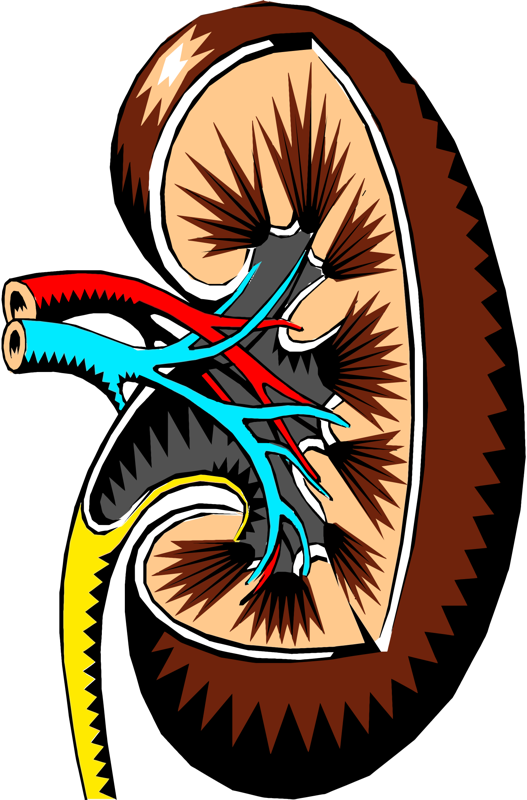
This year world kidney day was on 8th of March, thus coinciding with women's international day. So the focus was on kidney diseases in women. In case you missed all the informative articles at the time, it is never too late to learn about it. Chronic kidney disease (CKD) affects about 10% of the world's population, but women face certain unique challenges, because of their reproductive system. The incidence of CKD is also slightly higher in women, 14% in women v/s 12% in men.
What is CKD?
According to Wikipedia CKD is the gradual loss of kidney function over months or years. Because the kidneys cannot filter the blood properly, excess fluid and waste from blood remain in the body, and may cause other problems like heart disease and stroke.
Initially, there may be no symptoms for CKD. The earliest symptoms include leg swelling, tiredness, vomiting and loss of appetite. CKD usually gets worse with time, but treatment can slow down the progression of the disease. Left untreated CKD can lead to kidney failure, and then either dialysis or kidney transplant is required for survival.
Pregnancy
Women with CKD may have irregular periods and experience sexual dysfunction. Kidneys directly affect the level of reproductive hormone, and impaired kidneys due to CKD result in a reduction of reproductive hormones increasing the risk of infertility.
Pregnancy itself puts women at risk for CKD.
Acute kidney injury (AKI), which can happen during pregnancy increases the risk for CKD. Preeclampsia is the primary cause of AKI during pregnancy. But other hypertensive pregnancy disorders also take their toll on the kidneys.
Blood flows from the kidney to the placenta and back during pregnancy in repeated cycles. These two organs are functionally deeply connected, so problems in one can result in problems in the other. So CKD increases the risk of preeclampsia and vice versa.
Septic abortions after an illegal procedure are the leading cause of AKI in countries where abortions are illegal. In India, although abortions are legal, there is a strong social taboo associated with unmarried women getting abortions, and minors require parental permission for abortions. This results in many women seeking illegal abortions.
Autoimmune
Autoimmune diseases like systemic lupus erythematosus (SLE), rheumatoid arthritis (RA) and systemic scelorodoma (SS) are far more likely to affect women than men. Each of these diseases are characterized by systemic inflammation, leading to dysfunction of a number of organs including kidneys.
Bone disease
The kidneys are responsible for producing hormones such as active vitamin D which is required for bone strength, so women with CKD may require calcium and vitamin D supplements.
Access to dialysis and transplant
Social, cultural and other reasons contribute to differences in treatment and access to dialysis for women. For example women are more likely to donate kidneys, but less likely to receive them. Also according to this article, women are more likely to get kidney disease, but less likely to get dialysis.
Worldwide, only 50% of patients requiring renal replacement therapy (RRT), which includes dialysis and kidney transplant, actually receive treatment. In low and middle income countries, this percentage is even smaller. Although limited data is available for gender comparison of access to RRT in case of end stage renal disease (ESRD), studies performed in Africa and Japan show that men are significantly more likely (twice as likely in Japan) to receive RRT in case of ESRD.
Urinary Tract Infection
Women are also at greater risk for infections of the kidney, resulting from urinary tract infections (UTI), which are more common in women because of their shorter urethra. Most infections are limited to the bladder and the urethra and can be treated with antibiotics.
However if left untreated, a UTI can progress and the infection may move up to the kidneys causing pyelonephritis, which can be a serious infection.
I am thrilled to be participating of the A to Z blogging challenge 2018.
